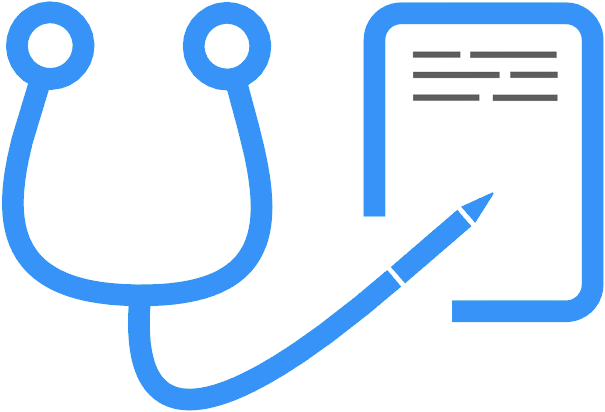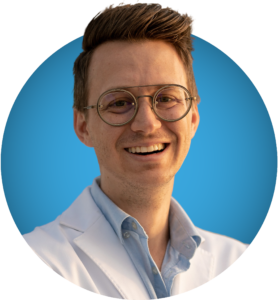
My name is Nathan. Early in my career, I was captivated by the strangeness, brokenness, artfulness, and touch of modern medicine. Clinicious is my take on those ideas.
Unusual health career lessons I’ve learned by living them. Here’s the story of my career and the formative principles I’ve learned along the way. (Please note that there is an abbreviated version of this elsewhere if that’s more your jibe).
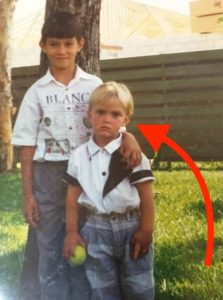
Like any child in their formative years, I was often faced with the question, “What do you want to be when you grow up?” I hated the question, but I also hated not pleasing people (anyone know any good therapists?), so I always had something to say.
As I progressed through high school and middle school, the question became more pressing, and I saw the deadline of college fast approaching.
I think this is where I developed my forward neck – staring into the future where I’d need to choose a major with not a clue as to my aspirations.
Great.
In reality, I had a really hard time believing that children could actually know what they wanted to do. My side-eye was even stronger for those who were really confident about it. Uh, they knew we were teenagers, right?
How could a teenager – one subjected to a rapidly-changing pre-frontal cortex, absurd fluctuations in mind-altering hormones, and a tenuous grasp on their current developmental stage have any clue about the thing they’d be doing for the next hundred years?
What I did know was that I was interested in a lot of different things. Hobbies were my hobby. Everything from sleight-of-hand magic to film production to fixing things to poetry to skateboarding to tight-rope walking – the list goes on. I loved interacting with people, knowing a little about a lot, fixating on complex problems, and pushing myself to become better at things.
And perhaps most kids weren’t too worried about their future careers, but I remember being a whopping ten years old, asking my mom how much it cost to go to college, and wondering how on earth I was going to pay for it. (Fun. The word you’re looking for is fun.)
In any case, what I ended up doing mattered to me. And since I was interested in so many things, I spent a long time worried that I wouldn’t be good at any one specific thing
They used to call it being a “Renaissance Man.” Nowadays, you’ll hear it called being a polymath. It’s a concept that sounds nice in abstraction, but it is poorly-recognized in modern heuristics – i.e., people typically have no mental category for this type of person.
You can see this being painfully true in business – everybody thinks they want the domain expert: “In order to get the job, you must have had the exact credentials and experience we think is necessary to work it.”
The fact is, the world has been shaped by polymaths – think Ben Franklin, da Vinci, and Elon Musk. But it’s not just true because of its most famous examples – everyday business owners, tradesmen, and corporate employees who are disproportionately successful can often attribute that success being broadly skilled in many disciplines and patterns of thinking.
It is the Renaissance Man that spurred the philosophy behind liberal arts degrees, which hinges on the idea (whether it is successfully taught or not) that understanding many parts of the world will help you to better understand how it integrates as a whole and perceive the operating principles that persist across many disciplines.
The love for a lot has served me in various ways throughout my career, though it’s often met with skepticism. The saying goes, after all, “Jack of all trades, master of none,” right?
I guess the best way to answer that is to actually finish the quote: “Jack of all trades, master of none, though often better than a master of one.” Peter Thiel, a renowned tech investor, notes on the subject of world-class entrepeneurs:
“One kind of perspective… is they’re not specialists. They’re something close to polymaths. And so… if you have a conversation with Mark Zuckerberg, he’d be able to speak… with [a] surprising amount of understanding about a lot of things.”
Nick DeWilde at the Jungle Gym has great thoughts on becoming what he calls the “expert generalist.” If you’re curious to learn more on this topic, he’s a great resource.
So here I was needing to make some choices about entering the workforce, but to qualify that as a single moment in time would be difficult.
I grew up the son of hard-working Romanian immigrant parents and can’t remember a time I wasn’t helping renovate apartments or sanding wall units in my father’s high-end cabinetry woodworking atelier. Even my fun moments consisted of swinging on palm branches and catching frogs after heavy rain outside of my dad’s wood shop.
I was definitely not innately driven to difficult work – I remember being 8 or 9 and trying to hide somewhere I couldn’t be found in his warehouse so I wouldn’t have to keep sweating it out covered in a fine layer of pecky cypress dust.
Talk about a great employee.
I decided I needed to take my intellect and talents elsewhere. Somewhere they could really be used. So, at the barely-legal age of 14, I went off and got a job somewhere I would be allowed to bloom – making sandwiches for Quizno’s.
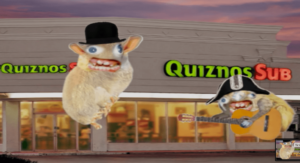
In reality, this was around the time of the Great Recession (capitalized for umph) and my dad didn’t have much work for me to help with, so Quizno’s it was for me since it was the only place I could reach with two wheels.
Even though it was just a sub-making/cash-taking job, I learned a lot here, and honestly a lot of it was through osmosis. It was the first time I ever had to interact with customers, figure out how to move rapidly under pressure, and take pride in my work (even if that work was bleach-cleaning the glob monster that collected at the bottom of the soda fountain drain).
I also began to be interested in the business side of things – why was Quizno’s doing poorly when Subway was, by all factors my two brain cells could measure, inferior? What parts of the brand worked? What didn’t?
I asked my bosses about what it was like to franchise. I wanted to understand more about the business, and watching Quizno’s almost completely shutter across the entire country in the next few years taught me lessons that impact me to this day. Things like:
– Quality matters, but so does cost: if you’re going to charge more for your product, you better have a reputation and brand identity that can justify that for your customers. Quizno’s was poorly-communicated quality.
– Keep things above board: if you’re going to franchise your brand, don’t sour the relationship with your franchisees with nepotistic supplier relationships.
– Read the room: 2009 was a bad time to be offering Gucci sandwiches. Be wise enough to understand the times and agile enough to respond to them. Subway understood this.

Eventually, I hit college age and still didn’t know what I wanted to do. For all my interest in business, weird hobbies, and seemingly entrepreneurial proclivities, you’d think I’d set my sites on something like a business degree.
So I chose to be a nurse.
If you’re surprised, just imagine my nursing professors – they kept grilling me on what I was doing there. I’m not kidding – my dean sat me down for a heart to heart because she couldn’t imagine someone like me wanting to go the way of the Nightingale.
There’s an archetype for the type of person that becomes a nurse, and I certainly wasn’t it.
My fellow nursing students all had some sob story on why they chose nursing – they were inspired by another nurse who cared for their loved one, they wanted to bring precious babies into the world, or they were incredibly empathetic.
I was told that if I wasn’t incredibly passionate for nursing or if I didn’t feel some sort of divine “calling,” I’d better walk away.
In one sense, I think they were trying to warn me – nursing is hard. And if you don’t have a deep-seated drive for it, you either won’t last or will perform poorly. And performing poorly on patients is of somewhat more concern than performing poorly on a spreadsheet (though I cannot comment on the potential existence of lethal spreadsheets).
In another sense, I also knew they were wrong, though I wouldn’t be able to articulate the reasons why for a long time. (Try explaining that to your nursing professors…!)
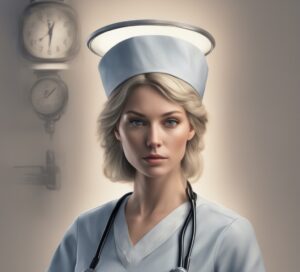
Surely, if some vague, ephemeral, and loosely-spiritual emotion were the criteria for donning the white hat, we wouldn’t have any nurses. So why did I want to become a nurse? Where did I think the drive to do well would come from?
– Nursing is defined by its demand for broadly-capable people.
A broad set of skills means being able to solve a broad set of problems. Getting anything done for patients is increasingly complex and requires skill in many different domains.
– Nursing isn’t just one thing.
I think most people imagine nursing as a narrow set of work performed in a hospital or office, but that limitation can’t be more inaccurate. There may not be a single more highly-differentiated career in existence than nursing. I had a vague idea of this at the time I was getting into nursing, which only solidified the longer I was in it.
But what remains on the subject of passion for your career? Isn’t that just a base value when considering your life’s work? Perhaps not. The following details an opinion which I realize may offend modern sensibilities (or maybe just Hollywood):
In my estimation, being passionate about something is a bad reason (in isolation) for choosing it as a career. Few reasons on my thinking:
– Passion is a feeling, and feelings usually change more rapidly than the marketplace can handle.
– As a feeling, passion competes with other overwhelming feelings, like burn-out (aka moral injury).
– There is a cultural narrative that your career is the most important thing you do with your life. This is not true for everyone most. If that base assumption is incorrect, passion takes second fiddle to much stronger motivators.
– It’s possible to mistake a hobby for a career.
– Passion can be damagingly self-interested – many have forsaken sacred responsibilities in the name of pursing their passion.
– In many cases, it can be tremendously difficult to know if you’ll be passionate about a line of work when making that choice from the outside. Seeing a nurse on TV is decidedly different from being one in real life, and you don’t really know just how true that is until you get there.
If I could take it one step further, I think the very concept of “choosing a career” is painfully Marxist – a great way to reduce the unique individuality of people into discrete categories of labor that they’re stuck in forever once they get there. Outrageous university costs and years spent studying are also great at making people feel eternally stuck. So what’s the answer?
Well, it’s one that deserves more exploration than what’s possible in a brief autobiography, but if I could sum it up into a single sentence, it would be:
Get out there, pick something you’re good at without limiting your options too much, make money, never stop growing, and keep trying different things.
With the freedoms afforded you by your newfound dough, make your career serve your passions instead of the other way around.
As for me, I chose to be a nurse based on what I knew were my skills: I was dedicated, enjoyed complex, rapidly-changing environments, extremely organized, highly efficient, and, obviously, very humble. I had a feeling that these traits were just as (if not more) important to patients as ethereal “passion.”
So, I went through the drudgery of nursing school. I thought my clinical rotations were going to be where I really started to figure out what this was all about, but it turns out these rotations teach students shockingly little about real patient care. It’s not the kind of thing you really learn until you’re the one responsible for the patient. Such is life: emotional involvement matters.
But from the little I saw, I ended up really loving direct patient-facing care and developed a deep heart seeing people who were suffering.
After I finished school, I got begged for my first hospital job. Basically, I found the hospital nearest to my house and wouldn’t stop showing up to their HR department until they caved and offered me a job.
I remember talking to the recruiter in that office and coming up with questions to ask just so I could go and show my face. It was a gutsy move and she knew exactly what I was up to.
I needed to show her I was serious about the job and I knew a faceless resume that got lost in a stack of emails wasn’t going to seal the deal.
I was applying whatever little I knew about human psychology to this point (read: not much). But the thinking was that a recruiter seeing me with the dedication to do something like this could reasonably assume I was going to show the same dedication in my work. By the end of it, she told me, “There’s a lot of people that applied, but I could see your seriousness about getting this job, so we chose you.”
So there I was, working in the hospital – dream come true, right?
Well, kind of.
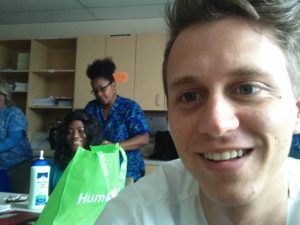
I was about a year in on a tele/med-surg floor. I was great at my job and patients loved me for always going the extra mile and helping them make sense of being in the hospital (i.e., the most confusing place anyone’s ever slept in).
And for all the talk about the relationship between passion and skills, I ended up loving the patient-provider relationship. Plus, I was making way more money than when I was slinging sandwiches.
More than that, I genuinely loved how weird the whole thing was. Complete strangers ask you very personal questions. Doctors struck me as odd and/or mean people – at least a standard deviation moreso than the general public. Hospitals are the penultimate examples of eery liminal spaces, especially at 3 in the morning. Honestly, the whole thing was giving Black Mirror.
But as much as I love surreal television, something started to bother me. Faced with actual, day-to-day patient care, I began to see how common errors and near misses were in practice. And it wasn’t just me imagining things – reports coming out for several years now show an annual death rate due to medical errors to be in the 250-400k range. Bear in mind, that’s just the death rate, not injury rate…!
At least 250,000 people are dying every year from health errors.
Let that sink in a bit. That’s 3-4 football stadiums full of people that die – not because they were sick enough to die, but because someone taking care of them screwed up.
I think this is where much of my skepticism towards healthcare began. We were chopping off wrong limbs, skipping refills on life-sustaining medications, missing obvious red flags when patients were deteriorating, and operating on the wrong patient.
I guess “mad” is a word you could use, but “infuriated confusion” might be better. Honestly – seriously – how could this be happening in the 21st century?
On its face, it sounds like the problem is providers. That’s probably true in some cases, but at this point, I was seeing the man behind the curtain, and it was increasingly obvious that it wasn’t a man (more on that here).
The same curiosity I had when serving sammies plagued me now, but the problems I was beginning to see were much bigger:
– A nurse’s patient load is unsafe because staffing philosophies are typically driven by hard money vs. soft money and razor thin margins, which themselves stem from the havoc wreaked by insurance companies since the 1930’s.
– Communication between doctors and nurses is a dumpster fire.
– As a nurse, your performance reviews are based on really important stuff like how many of your whiteboards are updated or how high you scored on scanning the inventory items you’ve used (so the hospital could make sure to charge for each one).
– You’re given a million and one responsibilities that have virtually nothing to do with patient care and everything to do with protecting against litigation (imagine missing that your patient is deteriorating because you’re too busy documenting).
Every organization incentivizes something, and those incentives drive the type of outcomes you achieve. And incentives like these don’t do a great job of driving patient safety. Don’t get me wrong, incentives for patient safety in the hospital do exist, they just don’t carry nearly as much weight as what the insurance companies ask for.
This can come off as surprising to people who’ve only ever been in outpatient environments like doctor’s offices, but hospitals are where all the problems I’m discussing are at their worst. For me personally, this is one of the reasons I knew it was time for a change. The other was my income.
I was making more money than when I was slaying subs, but that’s not saying a lot. Plus, they weren’t reimbursing for moral injury or PTSD at the time, which is a shame because I still have those receipts.
I decided to go back to school and get my Nurse Practitioner degree. But my years spent on the floor was a looking glass that gave me an incredible amount of perspective. Patient safety, the industrial machine of healthcare, and healthcare communication became topics near and dear to my heart.
I went into nursing knowing that it offered more than just working on a hospital floor. While I was getting my NP degree, I decided to explore what else was out there. And boy, did I. Over the course of a few years, I worked 5 very different jobs.
– I found work as a simulation instructor. This one really scratched an itch I had for helping learners prepare for the difficult and error-prone scenarios they were actually going to deal with. I gave them experiences I wished I would have had in nursing school.
– I moonlit in informatics as a HEDIS abstractor. If you’re interested in what HEDIS is, don’t be – unless you have an incredible affinity for blue light.
– I found myself as one of the first US employees for a VR healthcare training startup. I learned about sales, customer success, and agile product development/deployment.
– I started a freelance business as a health content marketer. This is when I got the chance to flex some entrepreneurial tendencies on my own.
– Eventually, I got my degree and started working clinically again, but this time as a Nurse Practitioner. I’ve been working ever since with disabled veterans in an outpatient setting.
So, what’s next? Great question.
I guess the main difference between me and my 5-year-old self is the fact that he had more of a plan for his future than I do. What I do know is that providing patient care in the environment we’re confronted with is a source of endless fascination for me – for its weirdness, for its brokenness, for its artfulness, and for its touch.
Clinicious is my take on those ideas.

My name is Nathan. Early in my career, I was captivated by the strangeness, brokenness, artfulness, and touch of modern medicine. Clinicious is my take on those ideas.
